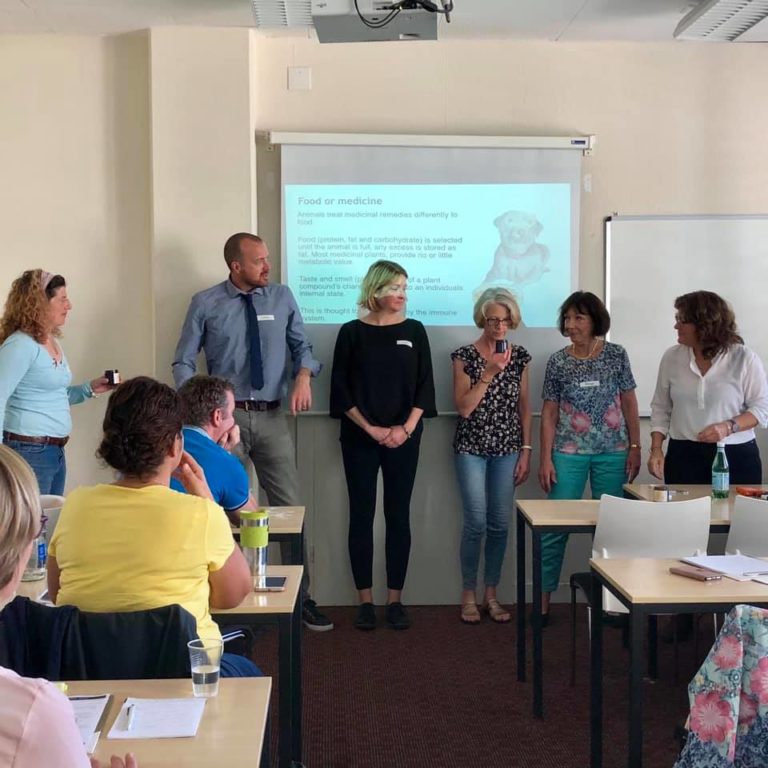 Caroline Ingraham, founder of Applied Zoopharmacognosy and a leading expert in the field of animal self-medication, did a fascinating experiment with 5 of the delegates at our Swiss Natural Dog Seminar last year where she got them to dip their finger into a pot of licorice root powder and taste it. See photo below: from left Jenny, Conor, Julia, Anne, Marga and Caroline. All said it tasted sweet on the first round. Some found it turned bitter on the second taste, some on the third, some it was on the fourth taste that the licorice became bitter on their tongue. Licorice root powder is good for adrenal fatigue (among other things), so as Caroline explained, those that found it sweet longest actually needed more of it. When they'd had enough, the taste became bitter. It was amazing, like watching magic unfold in front of us. That's the underlying principle behind Applied Zoopharmacognosy. Animals are capable of self selecting what they need to heal themselves - if we allow them to. I saw this firsthand with our Gracie when she was gravely ill in January. I've written about her seeking out dandelions (good for the liver and kidneys) in my blogpost here and luckily I had attended a weekend training seminar on AZ with Caroline so, in the week she was critically ill, I offered her a selection of essential oils. I wasn't expecting much to be honest, she was not eating or drinking at this stage and was really very weak but I figured we had nothing to lose. I offered her lemon, lime, oregano, wild orange and rose. When I say "offered" I opened the bottle and left it on the ground near her, then observed. Gracie clearly chose lemon, known for its' antiseptic and antibacterial properties. She inhaled for a couple of minutes then turned her head and fell into a deep sleep. A friend with me at the time could not believe her reaction which was subtle but unmistakable. That's the thing I find about AZ - it really does have to be seen to be believed. In my mind AZ, along with excellent veterinary care at Medivet plus acupuncture from Dr. Victoria Unt (Vet Equilibre) along with Gracie's determination to survive helped her turn a corner that week. So how does it work? I've taken this quote from Caroline's website: "Ingraham Applied Zoopharmacognosy (IAZ) enables self-medicative behaviour in domesticated or captive animals by offering plant extracts that would contain the same, or similar constituents to those found in an animal’s natural environment. The practice encourages and allows an animal to guide its own health, since unlike their wild counterparts, captive and domesticated animals rarely have the opportunity to forage on medicinal plants." We were lucky enough to welcome Caroline as a speaker at the 2019 NDS in Montreux and luckier still that she has agreed to return for our next event, whenever that will be. Caroline has fascinating case studies on her Facebook page, including a recent one involving a horse that was the victim of an acid attack and survived thanks in no small part to her input. She is also offering webinars and online training courses which, speaking from experience are fascinating. If you're interested in learning more, I'd really encourage you to follow her here.
2 Comments
|
AuthorAileen Woulfe, Irish expat, lifelong animal lover, Swiss qualified with a diplôme cynologique in breeding, grooming and kennel management and owner of Happy Dogs Aigle boarding and daycare in Vaud, Switzerland. Archives
December 2020
Categories |
 RSS Feed
RSS Feed